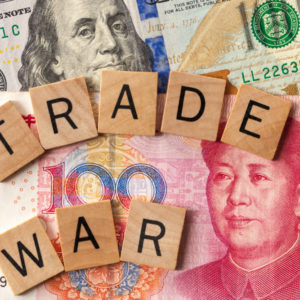Some in Washington are abuzz over news that China just signed a trade agreement with 14 Asia-Pacific nations.
The Regional Comprehensive Economic Partnership (RCEP) that Beijing concluded will encompass roughly one-third of the world’s population along with 30 percent of global economic activity. Pundits are calling it the largest trade deal ever signed.
Some fret that it’s a further sign of China’s inevitable rise to global supremacy.
However, the deal is a doomed-to-fail attempt by small Asian nations to pry open the Chinese market. Realistically, Beijing will not be deterred from building its industrial capacity even while undermining the manufacturing capacity of its neighbors.
Beijing has already made this clear in its September update to plans for increasing Chinese content in so-called “strategic emerging industries.”
While the United States must remain vigilant regarding Beijing’s wider global aims, right now the priority in Washington should be job creation.
The COVID-19 pandemic has pushed the nation into recession territory, and at least 11 million Americans are currently unemployed. The U.S. has also lost hundreds of thousands of manufacturing jobs this year. The focus must be on getting manufacturing back in gear in order to start generating middle-class jobs.
To do so, Washington must move away from the business-as-usual thinking that invited trade agreements in the first place — and has allowed trade-surplus countries like China, South Korea and Japan to keep dumping goods in the U.S. and driving up America’s endless annual trade deficits.
The bottom line is that trade agreements distract from U.S. economic development — and often harm it. For example, NAFTA, which took effect in 1994, led to massive increases in America’s trade deficits with both Mexico and Canada — and also cost a good chunk of the U.S. auto industry.
Similarly, “normalized” trade with Beijing starting in 2001 sent America’s China goods deficit soaring — and cost the U.S. 3.7 million jobs.
Essentially, trade agreements have continually failed when used as an instrument of America’s foreign policy.
Even though the United States spends more than $3 billion annually to secure South Korea’s safety and stability, globalists still insisted on a “KORUS” deal that commenced in 2012. Within three years of the agreement taking effect, America’s annual trade deficit with South Korea had jumped by more than $10 billion.
Regardless of the real-world carnage, however, pundits continue to believe these trade deals will somehow democratize the world while delivering political and financial rewards for the United States.
But that never happens.
Instead, the United States generously reduces its tariffs — even though U.S. tariff rates are already among the lowest in the world. And then other nations boost exports to the U.S. and grow their own manufacturing sectors.
There’s a clear lesson here: Every country wants to keep selling as much as possible to the United States. And that should give Washington some insight — that the U.S. has leverage it needs to finally start using.
The first rule for doctors is “Do no harm.” In this case, step one for America’s economic recovery should be to stop digging a bigger hole.
Washington must stop using trade deals as foreign policy. There’s simply no margin left to sacrifice key industries in order to theoretically advance democracy in countries like Vietnam that are already rapidly moving into advanced technologies.
Instead, foreign policy should be built around defense commitments and foreign aid where needed. But trade agreements must no longer squander U.S. industrial strength.
America’s overall strength will come through economic rebuilding, particularly in light of the import-dependence that emerged at the start of the coronavirus.
Regrowing critical industries — including the pharmaceuticals and medical equipment needed to survive a pandemic — is the smart course to remain competitive with China. Until Washington focuses on building manufacturing security in the U.S. rather than other overseas, America’s workers and domestic companies will continue to struggle.

